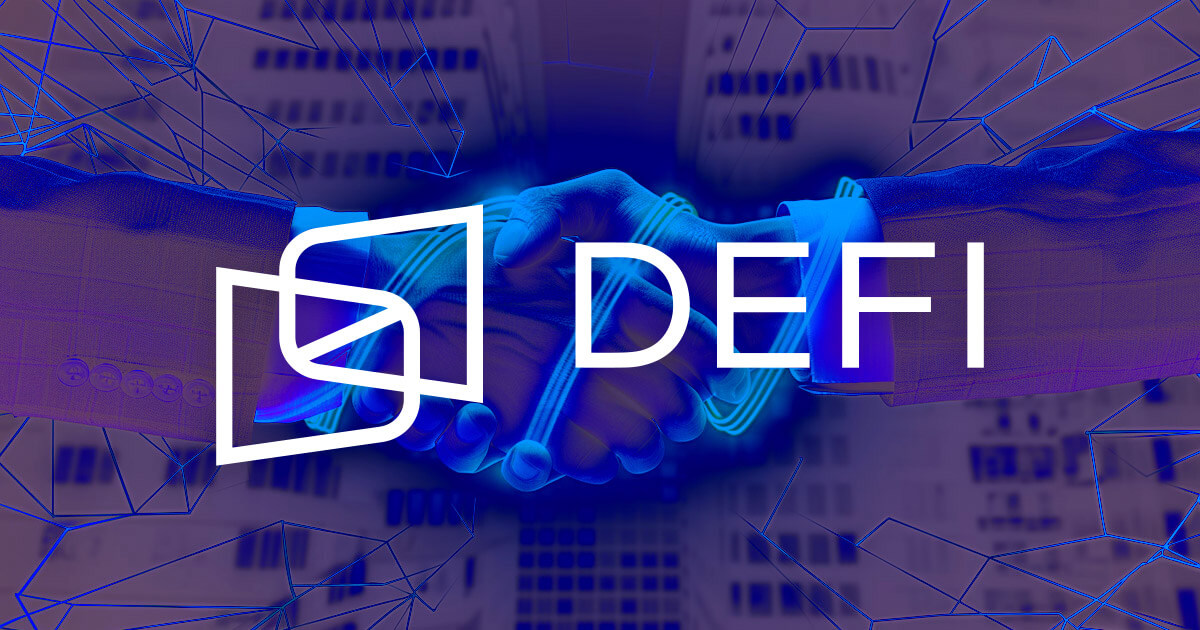DeFi
Zeebu Announces Third Quarterly Report, Plans to Launch “ZBU Protocol” to Revolutionize B2B Payments

In a revolutionary move that sets a new precedent in the DeFi sector, Zeebu, a leading Web3 payment platform for the telecom industry, is excited to announce its upcoming quarterly token burn event, powered by the ZBU Phoenix Protocol and its innovative “ZBU Protocol.” It is set to revolutionize the DeFi payments landscape.
Scheduled for August 2, 2024This event marks the third quarterly token burn and is designed to significantly reduce the circulating supply of ZBU tokens, reinforcing Zeebu’s commitment to maintaining value, ensuring sustainable growth, and setting a new standard in crypto economics.
Zeebu uses advanced blockchain technology to make telecom settlements faster, more secure, and significantly cheaper for telecom operators and their partners. The network uses smart contracts to automate and streamline transactions, ensuring accuracy and transparency, and reducing operational costs. The platform is meticulously designed to enable telecom companies to integrate seamlessly without significant development effort.
Since its launch in July 2023, Zeebu has processed an impressive $3 billion in transactions, demonstrating the growing trust and adoption of the Zeebu platform and ZBU tokens by telecom operators. The ZBU Phoenix Protocol plays a crucial role in this success by strengthening its tokenomics and fostering sustainable ecosystem growth. Zeebu is also taking another step towards greater decentralization with the launch of the ZBU Protocol.
ZBU’s Phoenix Protocol: Setting a New Standard in Crypto Economics
ZBU’s Phoenix Protocol introduces a transformative approach to the cryptocurrency economy, strategically reducing a significant portion of the total supply each quarter. This innovative process mirrors the regeneration cycle of the mythical Phoenix, symbolizing rebirth, renewal, and lasting value.
At its core, the protocol implements a systematic burning mechanism for ZBU tokens used in transactions. This process efficiently manages the token supply, preserving the effectiveness of ZBU as a means of settlement in the telecommunications sector. By ensuring a balanced token economy, the Phoenix Protocol addresses potential challenges in the cryptocurrency ecosystem.
Zeebu’s commitment to a sustainable and efficient blockchain-based settlement system is exemplified by this approach. ZBU’s Phoenix Protocol not only preserves the functional value of ZBU, but also positions Zeebu at the forefront of innovative financial technologies in the telecommunications sector.
In February 2024, Zeebu conducted its first quarterly burn, processing $714 million in transactions and burning 236 million ZBU, which represented 4.73% of the maximum supply. The second quarterly burn in May 2024 saw a substantial increase, with Zeebu processing over $1 billion in transactions and burning 239 million ZBU, marking a remarkable 46.1% growth in transaction volume.
The third quarter of August 2024 is a significant event for the Zeebu ecosystem, which is expected to process over $1.50 billion in transactions, an increase of approximately 50% over the previous quarter.
Reflecting on this growth, Keshav Pandya, COO and Co-Founder of Zeebu, commented, “Each burn event is a milestone in the evolution of Zeebu. The consistent growth in transaction volume and number of tokens burned demonstrates the growing utility and trust in our platform. Our innovative approach ensures a stable and reliable presence for ZBU, preserving its efficiency and enabling long-term growth.”
In addition to the burn event, Zeebu is taking another step towards greater decentralization with the launch of the ZBU protocol, an innovative initiative designed to revolutionize decentralized finance (DeFi).
Zeebu Plans to Launch ‘ZBU Protocol’: Unlocking $196 Million in Potential Rewards for B2B Settlements
Building on its commitment to decentralization, Zeebu proudly announces the upcoming launch of the ZBU protocol, poised to become the largest liquidity protocol for B2B settlements. This innovative protocol enables various stakeholders – from delegators and deployers to on-demand liquidity providers (OLPs) – to deliver substantial annual percentage yields (APY) through protocol rewards.
The ZBU protocol introduces key features that promise to revolutionize B2B settlements. Participants can stake ZBU in the VeZBU pool and provide liquidity in balancing pools upon launch, unlocking access to significant protocol rewards.
With an expected settlement volume of $14 billion over the next 12 months, participants can expect protocol rewards totaling approximately $196 million.
Raj Brahmbhatt, CEO and Founder of Zeebu, added: “With the ZBU protocol, we are harnessing the full potential of DeFi, supporting broader use cases and real-world applications that will bring tangible value to institutions, enterprises, and individuals. This milestone marks a significant advancement in our mission to bridge the gap between traditional finance and decentralized innovation, and we are excited to see the transformative impact it will have on the industry.”
The ZBU Phoenix Protocol and ZBU Protocol are designed to evolve symbiotically, promoting liquidity, settlement efficiency, and decentralization, forming a robust trusted network essential to future growth and stability.
“The convergence of ZBU Phoenix Protocol and ZBU Protocol marks an important milestone in our journey to build a robust and vibrant ecosystem. Our community is the backbone of our success and our protocols are designed to enable every participant to contribute and thrive. Together, we are creating a brighter financial future for all.” – Keshav Pandya, COO and Co-Founder of Zeebu.
About Zeebu
Zeebu is a cutting-edge payment and settlement platform designed for the telecom operator industry, leveraging blockchain technology to enable integrated financial solutions.
By creating a decentralized and transparent ecosystem for voice traffic exchange, Zeebu addresses the traditional challenges of inefficiency, opacity and trust issues in the wholesale telecom voice industry.
With its fast settlement times, elimination of middlemen and loyalty token rewards, Zeebu sets new standards for efficiency, cost-effectiveness and transparency in telecom settlements.
You can learn more about Zeebu by reading our white paper, available here.
Disclaimer: This is a paid release. The statements, views, and opinions expressed in this column are solely those of the content provider and do not necessarily represent those of Bitcoinist. Bitcoinist does not guarantee the accuracy or timeliness of any information available in this content. Do your research and invest at your own risk.
DeFi
Pump.Fun is revolutionizing the Ethereum blockchain in terms of daily revenue

The memecoin launchpad saw the largest daily revenue in all of DeFi over the past 24 hours.
Memecoin launchpad Pump.Fun has recorded the highest gross revenue in all of decentralized finance (DeFi) in the last 24 hours, surpassing even Ethereum.
The platform has raised $867,429 in the past 24 hours, compared to $844,276 for Ethereum, according to DeFiLlama. Solana-based Telegram trading bot Trojan was the third-highest revenue generator of the day, as memecoin infrastructure continues to dominate in DeFi.
Pump.Fun generates $315 million in annualized revenue according to DeFiLlama, and has averaged $906,160 per day over the past week.
Income Ranking – Source: DeFiLlama
The memecoin frenzy of the past few months is behind Pump.fun’s dominance. Solana-based memecoins have been the main drug of choice for on-chain degenerates.
The app allows non-technical users to launch their own tokens in minutes. Users can spend as little as $2 to launch their token and are not required to provide liquidity up front. Pump.Fun allows new tokens to trade along a bonding curve until they reach a set market cap of around $75,000, after which the bonding curve will then be burned on Raydium to create a safe liquidity pool.
Pump.Fun generates revenue through accrued fees. The platform charges a 1% fee on transactions that take place on the platform. Once a token is bonded and burned on Raydium, Pump.fun is no longer able to charge the 1% fee.
Ethereum is the blockchain of the second-largest cryptocurrency, Ether, with a market cap of $395 billion. It powers hundreds of applications and thousands of digital assets, and backs over $60 billion in value in smart contracts.
Ethereum generates revenue when users pay fees, called gas and denominated in ETH, to execute transactions and smart contracts.
DeFi
DeFi technologies will improve trading desk with zero-knowledge proofs

DeFi Technologies, a Canadian company financial technology companyis set to enhance its trading infrastructure through a new partnership with Zero Computing, according to a July 30 statement shared with CryptoSlate.
The collaboration aims to integrate zero-knowledge proof tools to boost operations on the Solana And Ethereum blockchains by optimizing its ability to identify and execute arbitrage opportunities.
Additionally, it will improve the performance of its DeFi Alpha trading desk by enhancing its use of ZK-enabled maximum extractable value (MEV Strategies).
Zero knowledge Proof of concept (ZKP) technology provides an additional layer of encryption to ensure transaction confidentiality and has recently been widely adopted in cryptographic applications.
Optimization of trading strategies
DeFi Technologies plans to use these tools to refine DeFi Alpha’s ability to spot low-risk arbitrage opportunities. The trading desk has already generated nearly $100 million in revenue this year, and this new partnership is expected to further enhance its algorithmic strategies and market analysis capabilities.
Zero Computing technology will integrate ZKP’s advanced features into DeFi Alpha’s infrastructure. This upgrade will streamline trading processes, improve transaction privacy, and increase operational efficiency.
According to DeFi Technologies, these improvements will increase the security and sophistication of DeFi Alpha’s trading strategies.
The collaboration will also advance commercial approaches for ZK-enabled MEVs, a new concept in Motor vehicles which focuses on maximizing value through transaction fees and arbitrage opportunities within block production.
Additionally, DeFi Technologies plans to leverage Zero Computing technology to develop new financial products, such as zero-knowledge index exchange-traded products (ETPs).
Olivier Roussy Newton, CEO of DeFi Technologies, said:
“By integrating their cutting-edge zero-knowledge technology, we not only improve the efficiency and privacy of our transactions, but we also pave the way for innovative trading strategies.”
Extending Verifiable Computing to Solana
According to the release, Zero Computing has created a versatile, chain-agnostic platform for generating zero-knowledge proofs. The platform currently supports Ethereum and Solana, and the company plans to expand compatibility with other blockchains in the future.
The company added that it is at the forefront of introducing verifiable computation to the Solana blockchain, enabling complex computations to be executed off-chain with on-chain verification. This development represents a significant step in the expansion of ZKPs across various blockchain ecosystems.
Mentioned in this article
Latest Alpha Market Report
DeFi
Elastos’ BeL2 Secures Starknet Grant to Advance Native Bitcoin Lending and DeFi Solutions

Singapore, Asia, July 29, 2024, Chainwire
- Elastos BeL2 to Partner with StarkWare to Integrate Starknet’s ZKPs and Cairo Programming Language with BeL2 for Native DeFi Applications
- Starknet integration allows BeL2 to provide smart contracts and dapps without moving Bitcoin assets off the mainnet
- Starknet Exchange Validates the Strength of BeL2’s Innovation and Leadership in the Native Bitcoin Ecosystem
Elastos BeL2 (Bitcoin Elastos Layer2) has secured a $25,000 grant from Starknet, a technology leader in the field of zero-knowledge proofs (ZKPs). This significant approval highlights the Elastos BeL2 infrastructure and its critical role in advancing Bitcoin-native DeFi, particularly Bitcoin-native lending. By integrating Starknet’s ZKPs and the Cairo programming language, Elastos’ BeL2 will enhance its ability to deliver smart contracts and decentralized applications (dapps) without moving Bitcoin (BTC) assets off the mainnet. This strategic partnership with Starknet demonstrates the growing acceptance and maturity of the BeL2 infrastructure, reinforcing Elastos’ commitment to market leadership in the evolving Bitcoin DeFi market.
Starknet, developed by StarkWare, is known for its advancements in ZKP technology, which improves the privacy and security of blockchain transactions. ZKPs allow one party to prove to another that a statement is true without revealing any information beyond the validity of the statement itself. This technology is fundamental to the evolution of blockchain networks, which will improve BeL2’s ability to integrate complex smart contracts while preserving the integrity and security of Bitcoin.
“We are thrilled to receive this grant from Starknet and announce our partnership to build tighter integrations with its ZKP technology and the Cairo programming language,” said Sasha Mitchell, Head of Bitcoin Layer 2 at Elastos. “This is a major milestone for BeL2 and a true recognition of the maturity and capabilities of our core technology. This support will allow us to further develop our innovation in native Bitcoin lending as we look to capitalize on the growing acceptance of Bitcoin as a viable alternative financial system.”
A closer integration with Cairo will allow BeL2 to leverage this powerful programming language to enhance Bitcoin’s capabilities and deliver secure, efficient, and scalable decentralized finance (DeFi) applications. Specifically, the relationship with Cairo reinforces BeL2’s core technical innovations, including:
- ZKPs ensure secure and private verification of transactions
- Decentralized Arbitrage Using Collateralized Nodes to Supervise and Enforce Fairness in Native Bitcoin DeFi
- BTC Oracle (NYSE:) facilitates cross-chain interactions where information, not assets, is exchanged while Bitcoin remains on the main infrastructure
BeL2’s vision goes beyond technical innovation and aims to innovate by creating a new financial system. The goal is to build a Bitcoin-backed Bretton Woods system, address global debt crises, and strengthen Bitcoin’s role as a global hard currency. This new system will be anchored in the integrity and security of Bitcoin, providing a stable foundation for decentralized financial applications.
As integration with Starknet and the Cairo programming language continues, BeL2 will deliver further advancements in smart contract capabilities, decentralized arbitration, and innovative financial products. At Token 2049, BeL2 will showcase further innovations in its core technologies, including arbitrators, that will underscore Elastos’ vision for a fairer decentralized financial system rooted in Bitcoin.
About Elastos
Elastos is a public blockchain project that integrates blockchain technology with a suite of redesigned platform components to produce a modern Internet infrastructure that provides intrinsic privacy and ownership protection for digital assets. The mission is to create open source services that are accessible to the world, so developers can create an Internet where individuals own and control their data.
The Elastos SmartWeb platform enables organizations to recalibrate how the Internet operates to better control their own data.
https://www.linkedin.com/company/elastosinfo/
ContactPublic Relations ManagerRoger DarashahElastosroger.darashah@elastoselavation.org
DeFi
Compound Agrees to Distribute 30% of Reserves to COMP Shareholders to End Alleged Attack on Its Governance

Compound will introduce the staking program in exchange for Humpy, a notorious whale accused of launching a governance attack on the protocol, negating a recently adopted governance proposal.
Compound is launching a new staking program for COMP holders as a compromise with Humpy, a notorious DeFi whale accused of launching a governance attack against the veteran DeFi protocol.
On July 29, Bryan Colligan, head of business development at Compound, published a governance proposal outlining plans for a new compound participation product that would pay 30% of the project’s current and future reserves to COMP participants.
Colligan noted that the program was requested by Humpy in exchange for his agreement Proposition 289 — which sought to invest 499,000 COMP worth approximately $24 million into a DeFi vault controlled by Humpy, and which appears to have been forced by Humpy and his associates over the weekend.
“We propose the following staking product that meets Humpy’s stated interests as a recent new delegate and holder of COMP in exchange for the repeal of Proposition 289 due to the governance risks it poses to the protocol,” Colligan said. “The Compound Growth Program…will execute the above commitments, given the immediate repeal of Proposition 289.”
Colligan added that the proposal would expire at 11:59 p.m. EST on July 29. Had Humpy not rescinded Proposition 289, Compound would move forward with it. Proposition 290 — block Humpy using the Compound team’s multi-sig to deploy a new governor contract removing the delegate’s governance power behind Proposition 289.
Hunchback tweeted that Proposition 289 had been repealed a few hours ago. “Glad to have brought Compound Finance back into the spotlight,” they said. added. “StakedComp… finally becomes a yield-generating asset!
Markets reacted favorably to the resolution, with the price of COMP increasing by 6.2% over the past 24 hours, according to CoinGecko.
Attack on governance
Proposition 289 proposed investing 499,000 COMP from the Compound treasury into goldCOMP, a yield-generating vault of the Humpy-linked Golden Boys team.
The proposal passed with nearly 52 percent of the vote on July 28, despite two previous iterations of the proposal being defeated by strong opposition. Can And JulyThe proposals notably asked for only 92,000 COMP, with security researchers warning that any deposit of tokens into the goldCOMP vault would cede their governance power.
In May, Michael Lewellen of Web3 security firm OpenZeppelin, note The first proposal was submitted by a new governance delegate who was suddenly awarded 228,000 COMP by five wallets that got their tokens from the Bybit exchange. Combined with his own tokens, the delegate got 325,333 COMP, which is over 81% of the 400,000 tokens required for a governance proposal to reach quorum.
“We have been alerting the community to the risk that these delegates could support a potential attack on governance,” Lewellen said. “The timing of the new proposal and these recent delegations are suspect.”
Read more: Compound community accuses famous whale of attacking engineering governance
-

 Videos1 month ago
Videos1 month agoAbsolutely massive: the next higher Bitcoin leg will shatter all expectations – Tom Lee
-

 News12 months ago
News12 months agoVolta Finance Limited – Director/PDMR Shareholding
-

 News12 months ago
News12 months agoModiv Industrial to release Q2 2024 financial results on August 6
-

 News12 months ago
News12 months agoApple to report third-quarter earnings as Wall Street eyes China sales
-

 News12 months ago
News12 months agoNumber of Americans filing for unemployment benefits hits highest level in a year
-

 News1 year ago
News1 year agoInventiva reports 2024 First Quarter Financial Information¹ and provides a corporate update
-

 News1 year ago
News1 year agoLeeds hospitals trust says finances are “critical” amid £110m deficit
-

 Markets1 year ago
Markets1 year agoWhale Investments in Bitcoin Hit $100 Billion in 2024, Fueling Insane Investor Optimism ⋆ ZyCrypto
-

 DeFi1 year ago
DeFi1 year ago🏴☠️ Pump.Fun operated by Insider Exploit
-

 Videos1 year ago
Videos1 year ago$1,000,000 worth of BTC in 2025! Get ready for an UNPRECEDENTED PRICE EXPLOSION – Jack Mallers
-

 Videos1 year ago
Videos1 year agoABSOLUTELY HUGE: Bitcoin is poised for unabated exponential growth – Mark Yusko and Willy Woo
-

 Tech1 year ago
Tech1 year agoBlockDAG ⭐⭐⭐⭐⭐ Review: Is It the Next Big Thing in Cryptocurrency? 5 questions answered





